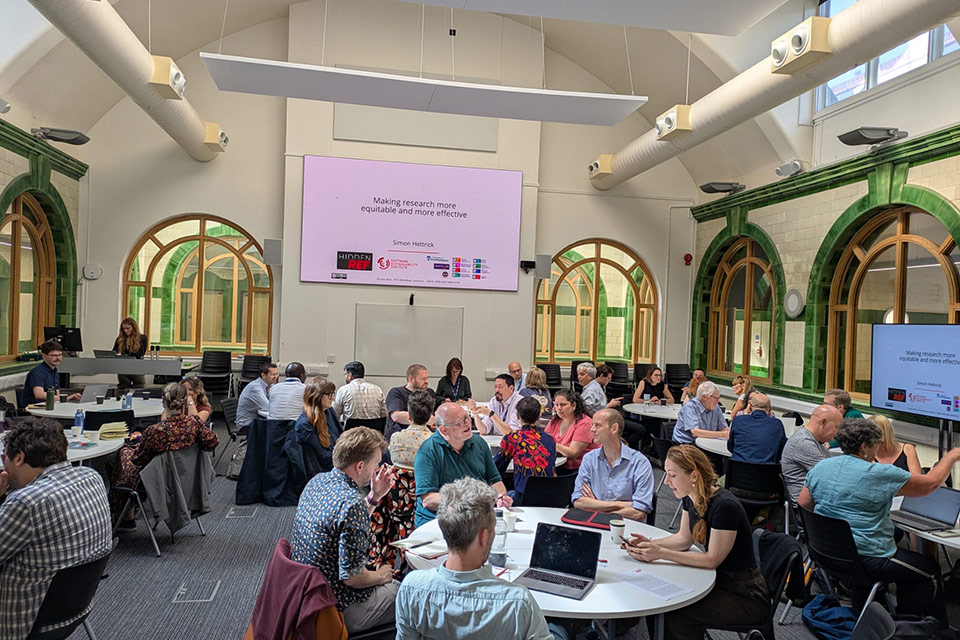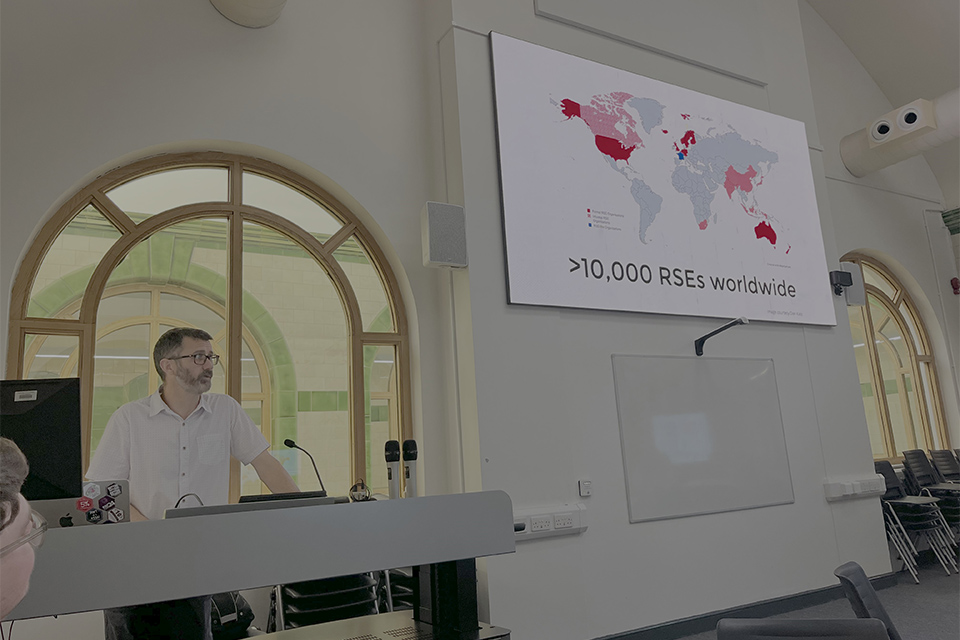
The University of Liverpool reaffirmed its position as a sector leader in recognising diverse research outputs by hosting the UK’s first Hidden REF workshop practicing the assessment of diverse output types (DOTs), on Thursday 27 June. Led by Professor Simon Hettrick, Chair of the Hidden REF and Director of Strategy at the Software Sustainability Institute and co-led by Dr Natalie Wallis from Liverpool’s Outputs Development Team, the workshop explored how DOTs are assessed within current Research Excellence Framework (REF) criteria.
The interactive session drew more than 60 Liverpool researchers and professional services staff, from across disciplines and career stages, to discuss how outputs such as software, datasets, exhibitions, performances and more can and should be valued alongside traditionally submitted outputs (journal articles and books). Significantly, the workshop was the first of a national series ran by the Hidden REF.

Over 50 Liverpool academics attended the Hidden REF workshop, to practice and discuss the assessment of diverse output types (DOTs). Photo credit: Simon Hettrick.
The Hidden REF is a national movement advocating for the recognition of all research output types, as well as the vital contributions of all staff who support research. They recently received a £3.6 million funding award from Research England - a clear sign of growing momentum to evolve REF policy in the UK.
Takeaways from the recent workshop will feed into the discussions around official REF policy, as the Hidden REF team will incorporate feedback from Liverpool researchers into forthcoming reports to influence the future of the REF. As Professor Hettrick noted during the event, “The University of Liverpool’s engagement with diverse outputs places it right at the cutting edge of institutions that are learning how to adapt to support research. Ultimately, if we don’t recognise every output and every role that is vital to research, we limit our ability to conduct research”.

Professor Simon Hettrick delivered the workshop on the assessment of non-traditional outputs. Photo credit: Natalie Wallis.
Dr Natalie Wallis added: “It was fantastic to see such strong engagement and thoughtful discussion throughout the workshop. I hope it will be the first of many events that help drive forward clearer guidance and better support for both the creation and assessment of diverse research outputs.”
The University of Liverpool is also continuing to drive this agenda through dedicated funding support. In partnership with the Impact Acceleration Accounts (IAA) team, the Outputs Team has launched a new funding call offering up to £2,000 to support Liverpool researchers in the development and dissemination of non-traditional outputs.
For Liverpool researchers, this workshop and funding opportunity offer a concrete way to shape the future of research culture. The University will continue to collaborate with the Hidden REF, with future workshops and contributions to the Hidden REF Festival taking place in Birmingham, 7–8 October 2025.
To find out more about how Liverpool is supporting diverse research outputs, visit the Outputs Development Hub or contact outputs@liverpool.ac.uk.